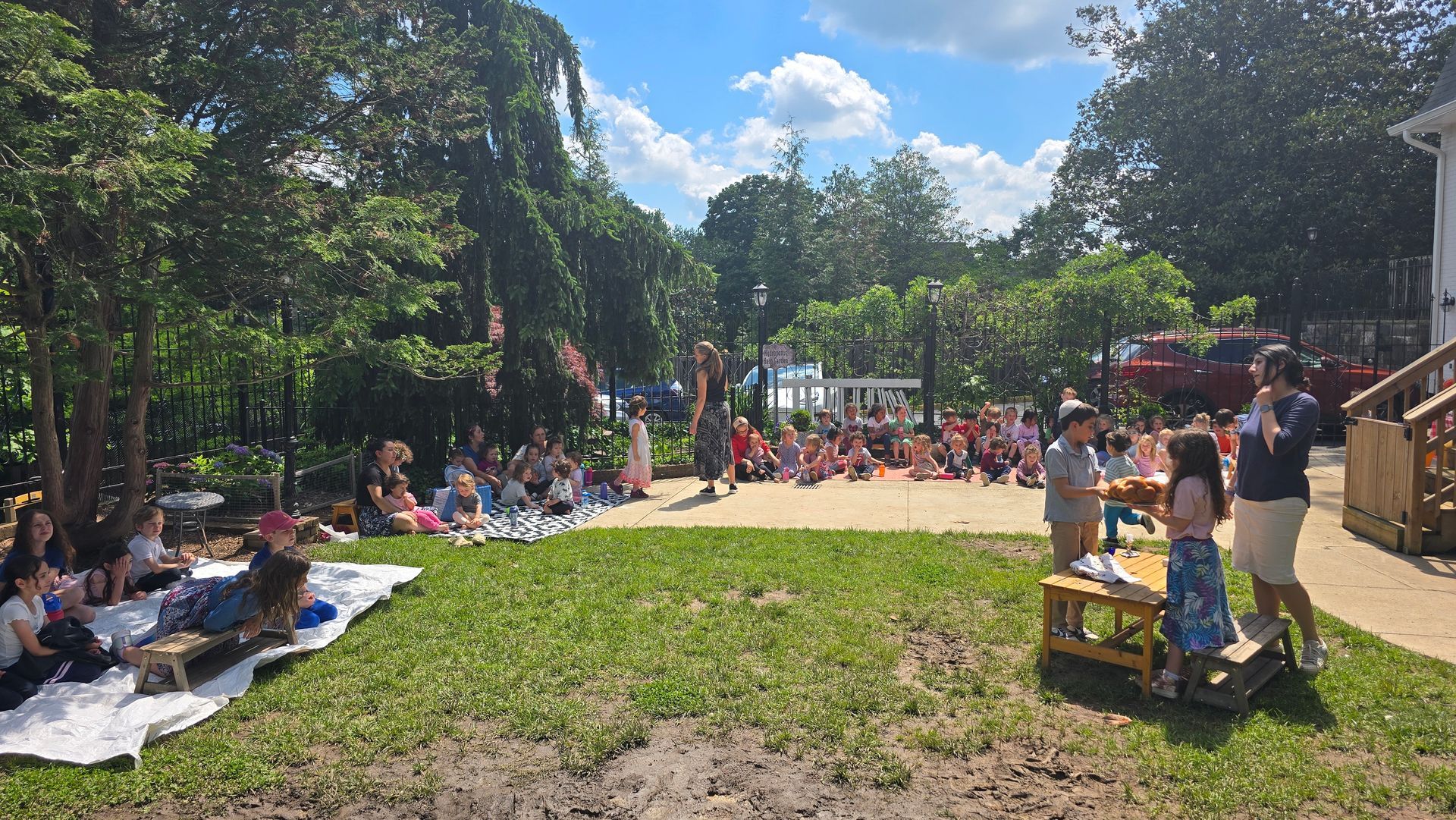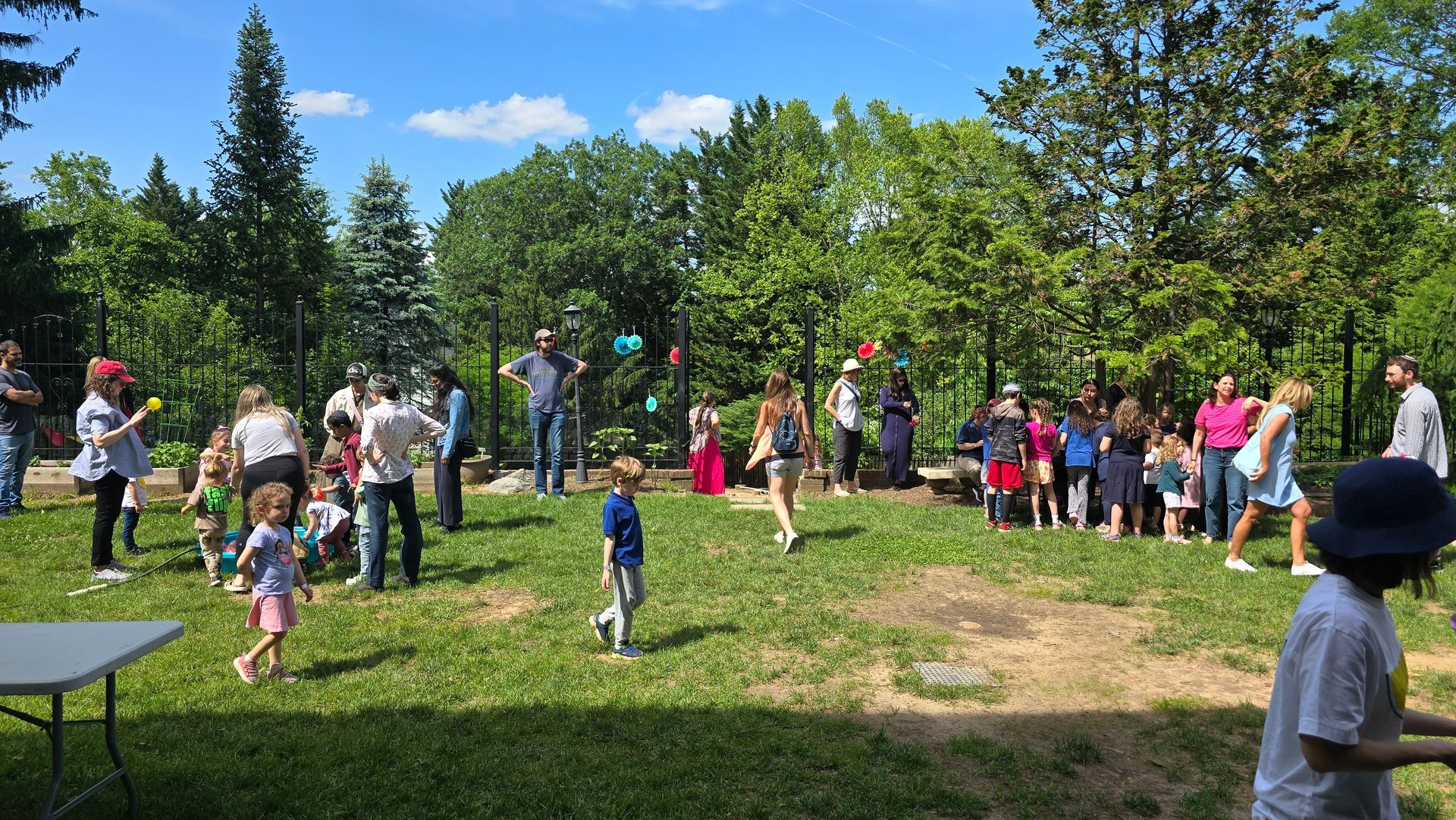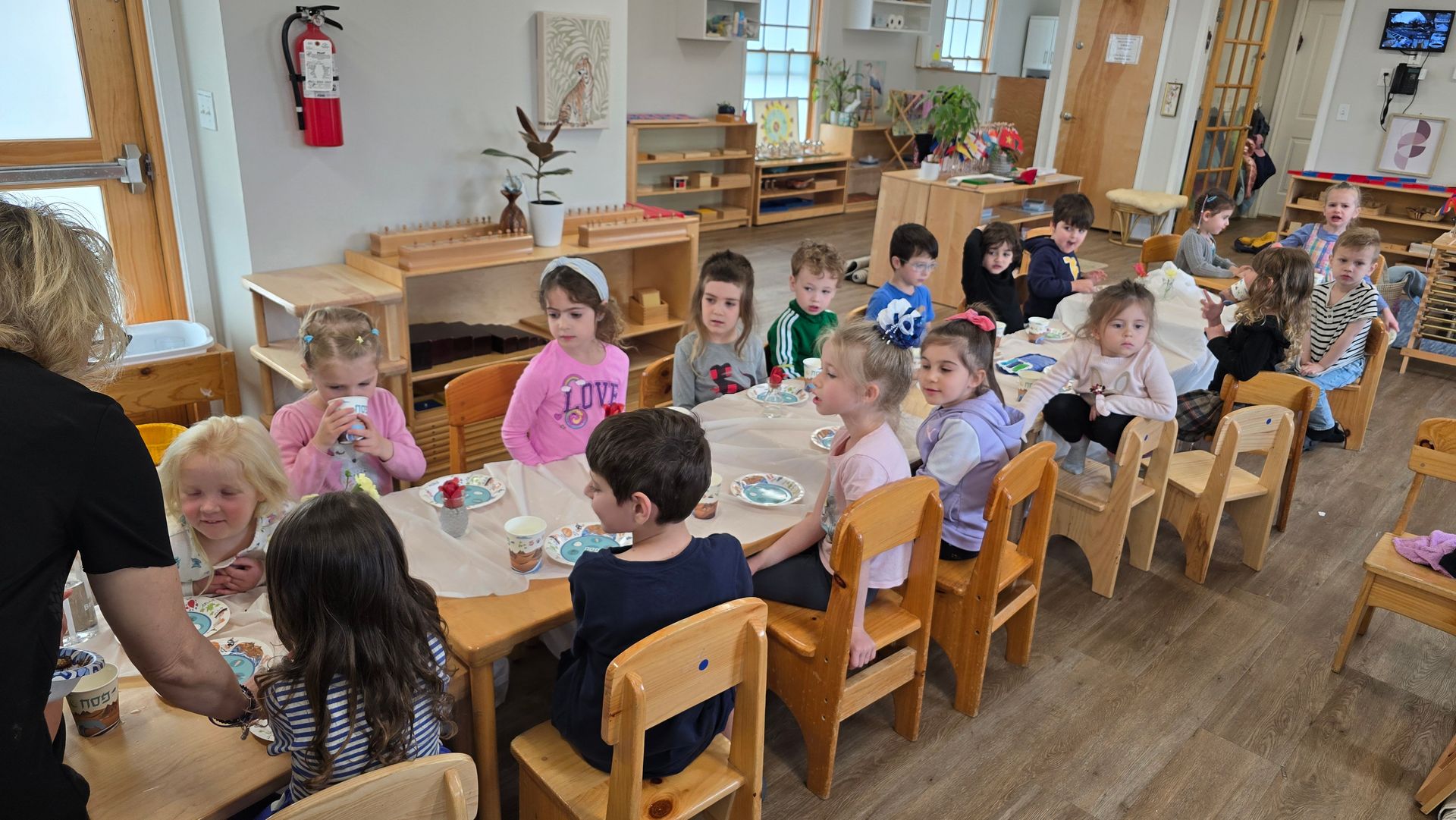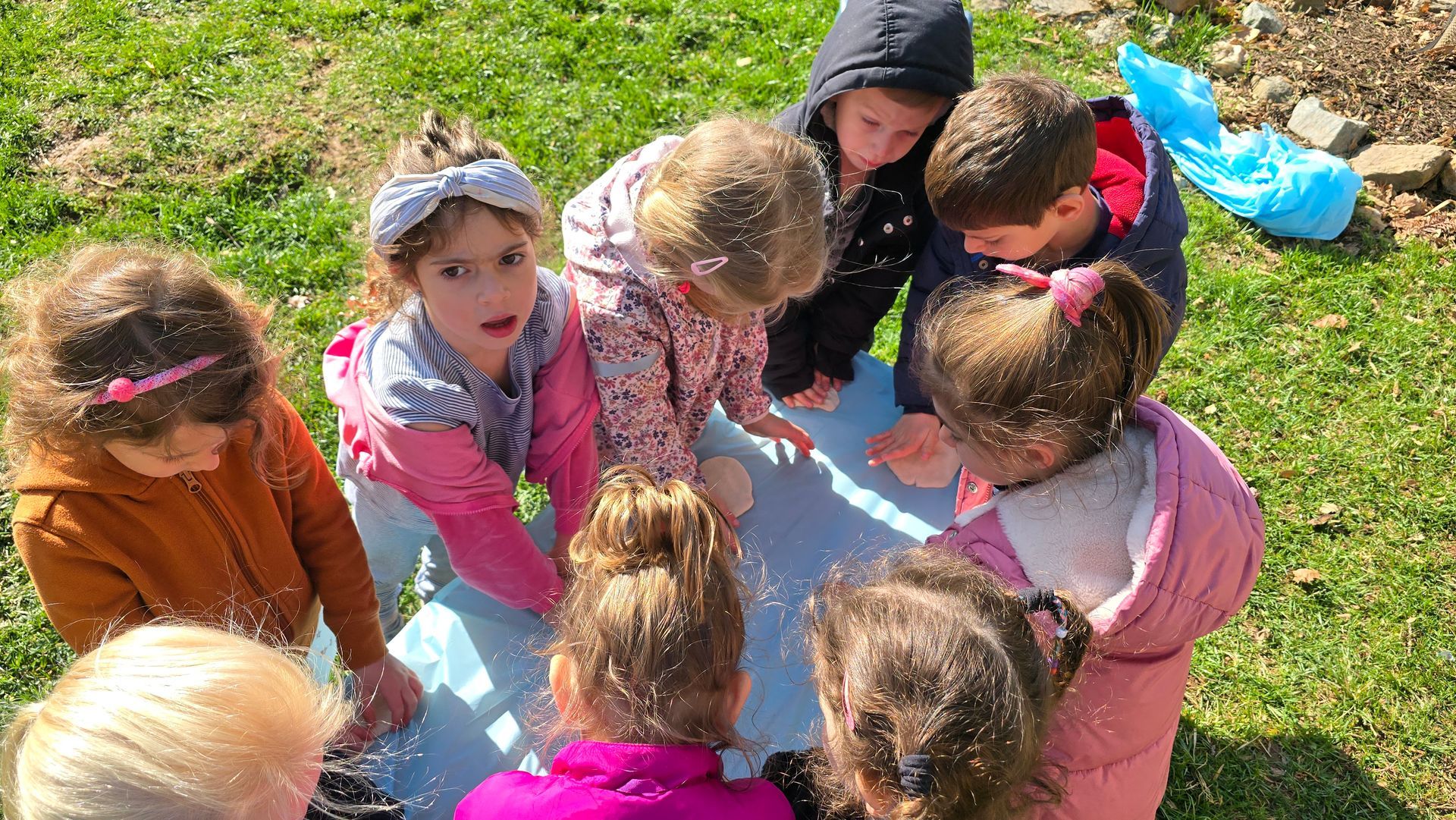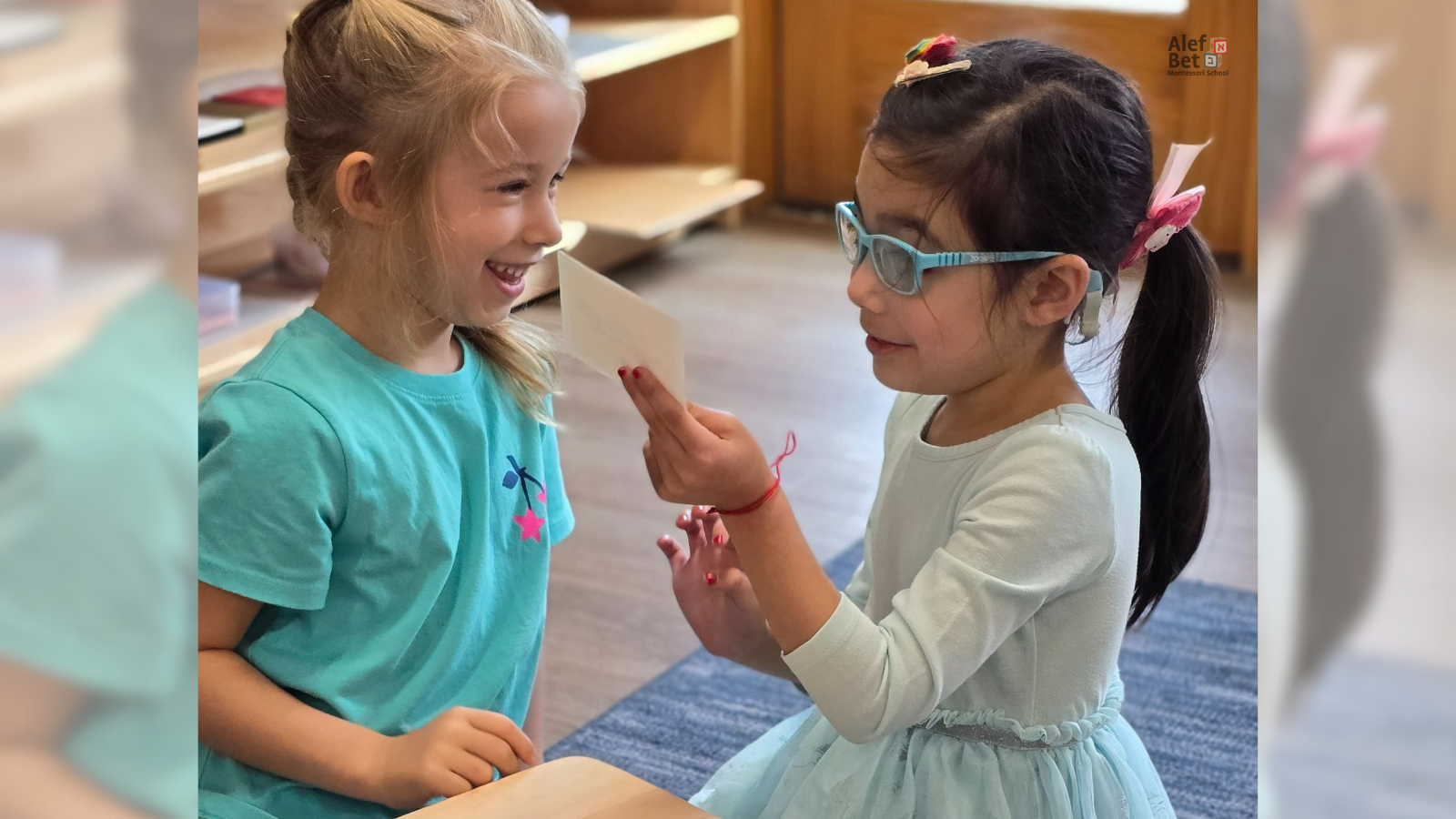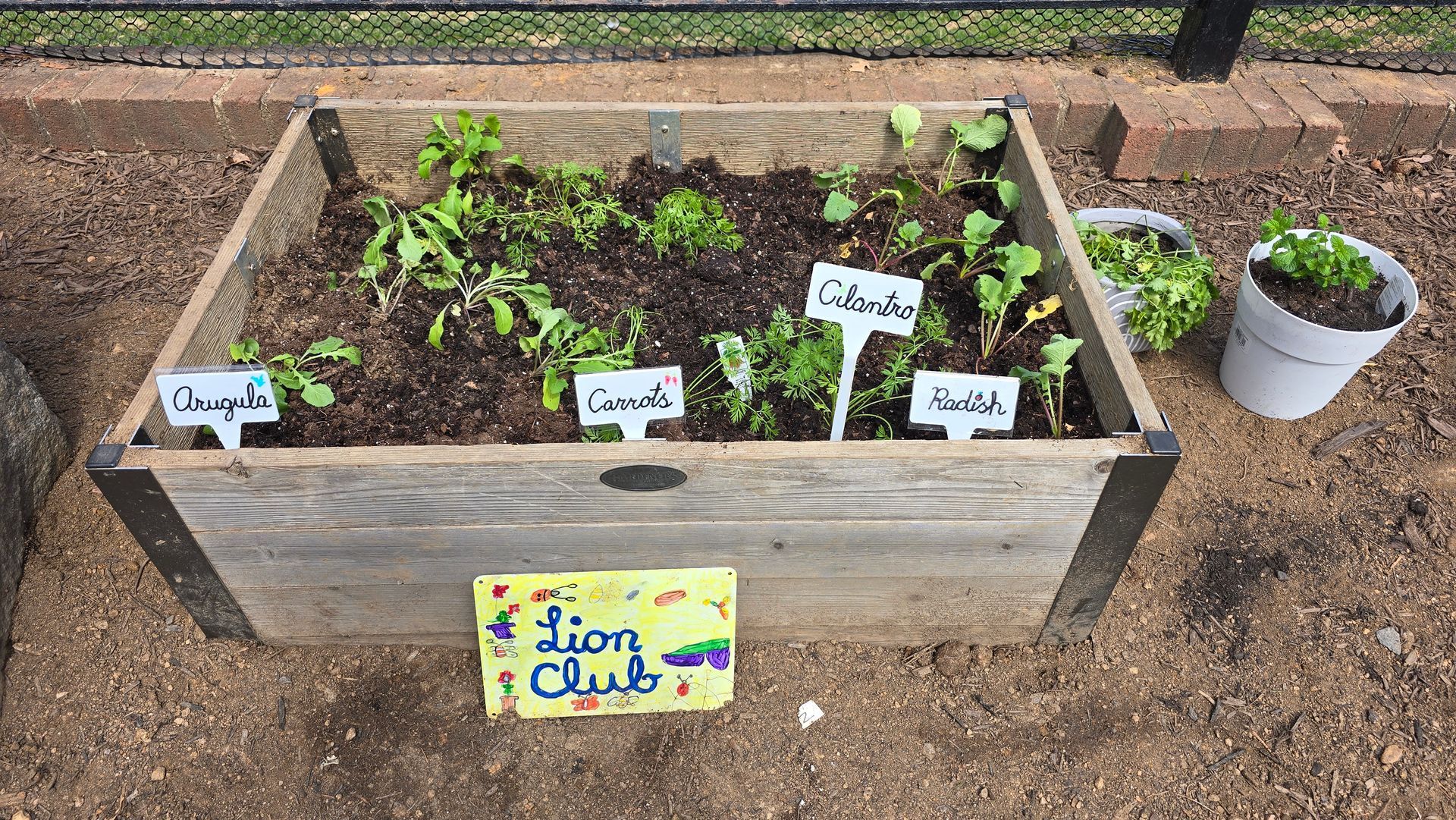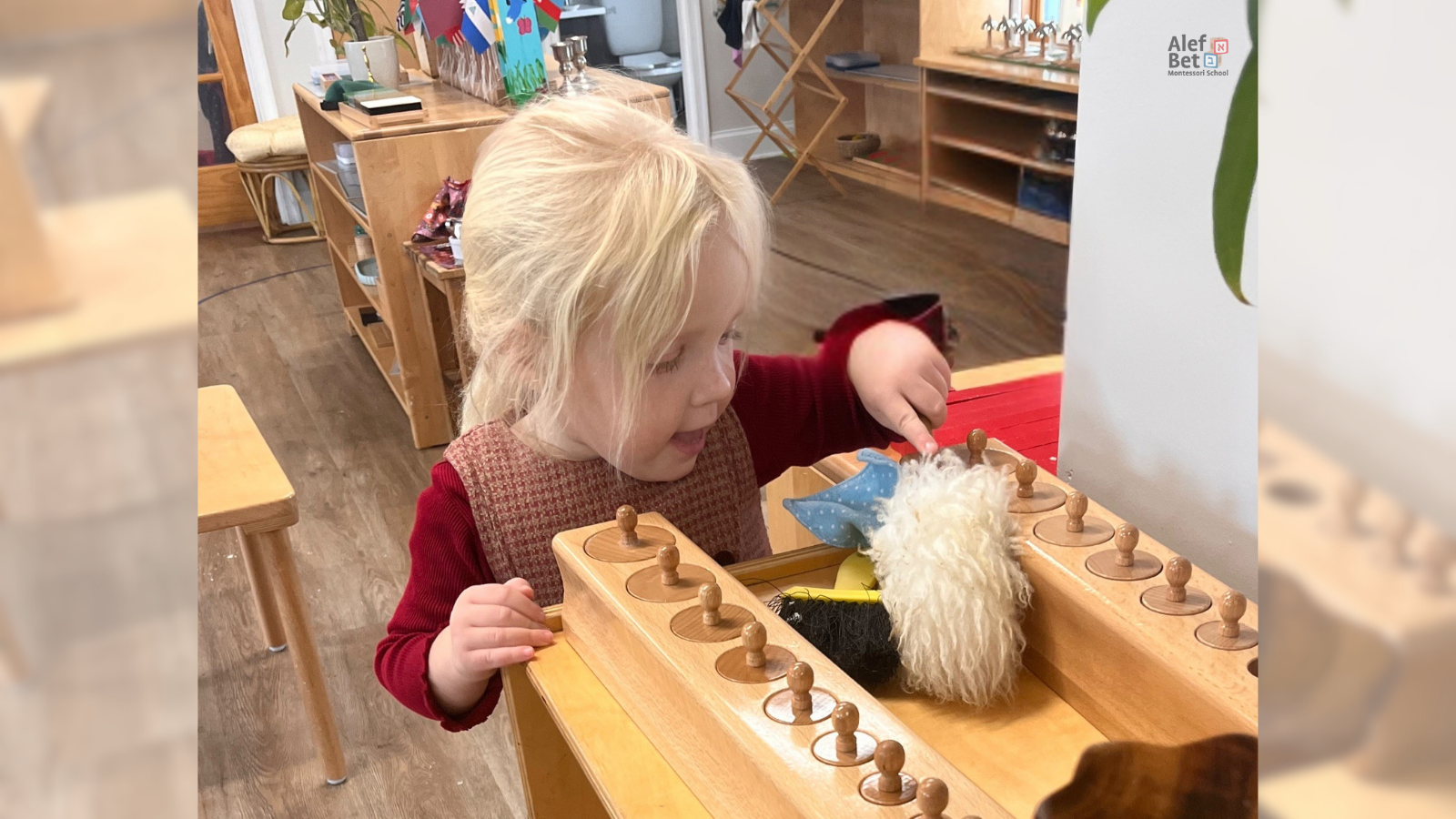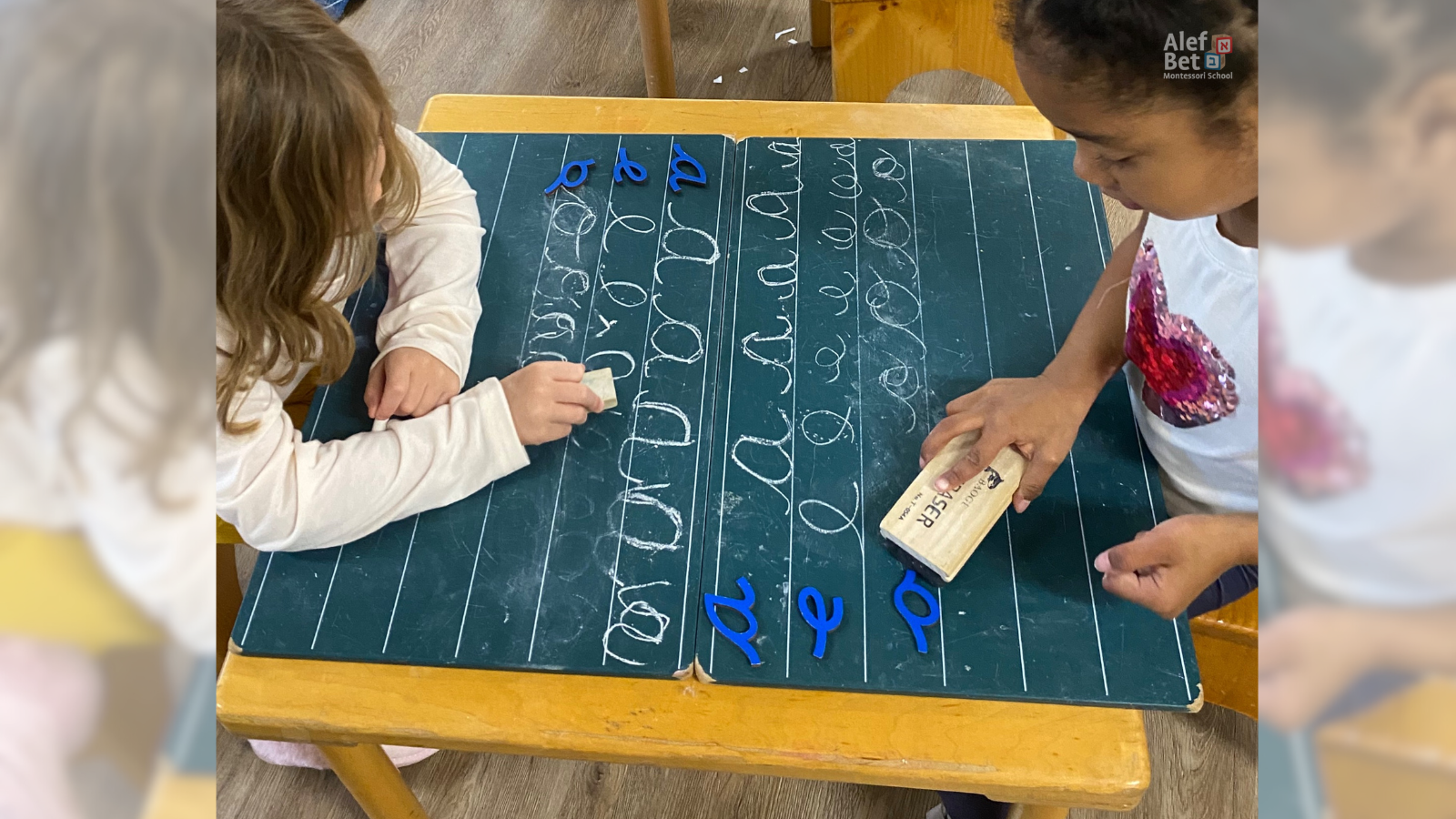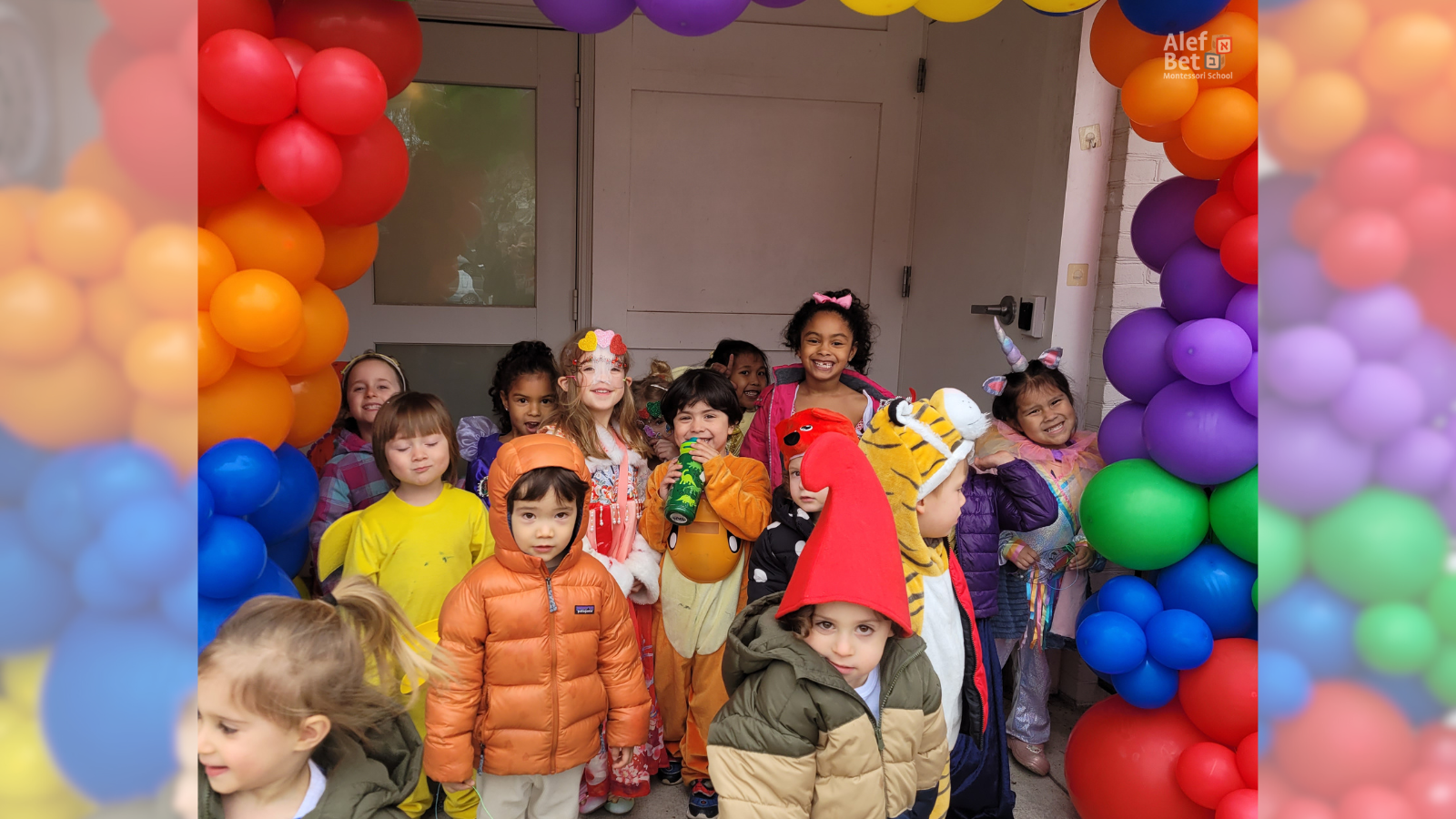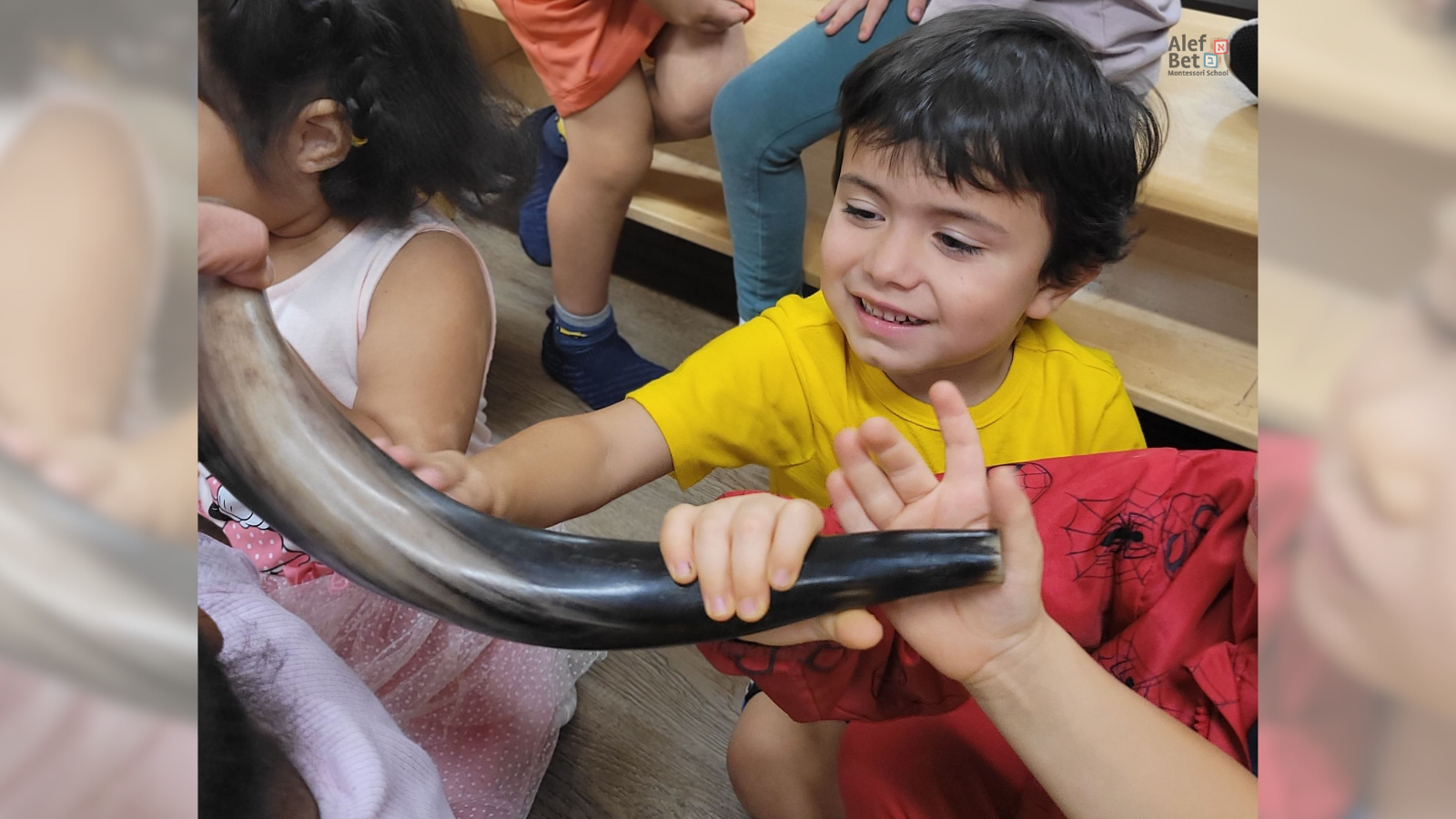Connecting to Nature – Montessori & the Outdoors
“When children come into contact with nature, they reveal their strength.” – Maria Montessori
At Alef Bet, we don’t take our outdoor space for granted; each area serves a specific function. From the fish pond where students can feed the fish, to the vegetable garden where our students have the opportunity to water the seeds and watch the veggies & plants grow, to our wonderful fire-pit where children have been known to make s’mores (with the help of teachers & parents) to our composting process, and finally to our newer addition of chickens, our students never have a dull moment. Let’s take a closer look at one of the things that makes our school unique:
♫ “Layer it and layer it and layer and layer it, and layer it, and layer it, Compost Cake!”
“Turn it, and turn it, and turn it, and turn it, and turn it, and turn it, Compost Bake!”
“Pile it high, pile it high, pile it high, Compost Make!”
At our back yard garden you’ll see some giant green cylinder sitting on a rotating axis. This compost bin is called a Tumbler. Tumbler compost models allow students of all ages to spin the compost (working those gross motor skills), in addition to speeding up the composting process. In our old bin, it takes at least a year for our food waste and garden scraps to decompose fully. We will have a finished compost in as little as two weeks. Cheers to that!
What is Compost?
Compost is the product that’s left after organic matter has fully decomposed. It’s also called humus. Human-made compost comes from carefully mixing food and garden waste materials — ingredients high in either nitrogen or carbon — and placing them in an environment where they can decay. When the decaying process has gone well, we put the finished compost, or humus, back into the garden soil and grow healthier plants by improving soil fertility. This way we fertilize our garden as well.
Why do we compost at Alef Bet Montessori School?
For starters, compost has a longer ground-life than other fertilizers. It lasts longer in soil than crop residues or animal manures that degrade rapidly here in the humid Southeast. This longevity makes for healthier plants and food crops. Composting also reduces our waste throughout campus. By diverting organic matter from the landfill and into a closed-loop cycle, we transform our “waste” into a fertilizer for our gardens and food for the microorganisms that live in the soil beneath us. We also save money by eliminating the need and associated cost of additional soil fertility inputs. And let’s not forget, composting is just plain fun!
